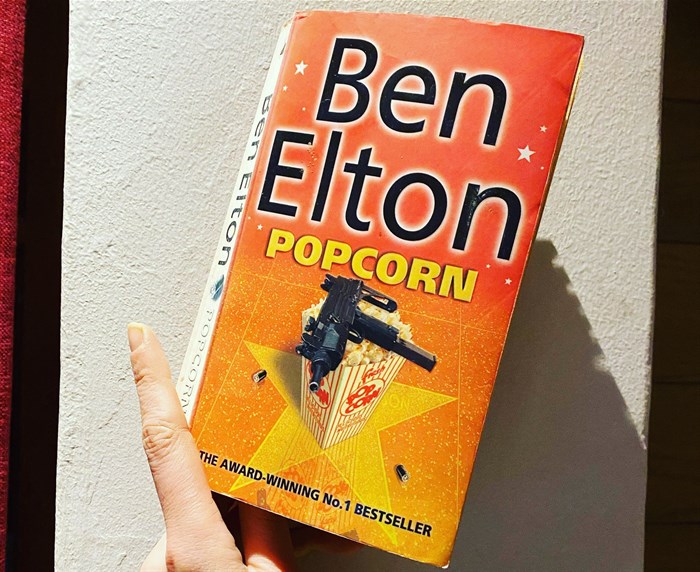
This week I read a, well, pulp fiction novel, by Ben Elton. Popcorn was published in 1996 (a whole lifetime ago!) and dead with a cast of nasty self-centred characters who do rather nasty things to each other. There is plenty of sex and violence (as any good pulp fiction book should have) but it is also rather witty and wise.
Popcorn is an observation of us and our shallow, selfish, culture that preferences style and money over substance and sense. (Nothing new there, in many ways human culture is depressingly predictable and historically consistent in our regard for fame and fortune.) But more than that, underneath all the flippery and graphic action shots, Popcorn is essentially a morality tale about what happens to society when no one takes responsibility for anything; what happens when responsibility for the consequences of our acts of commission and omission are passed around like a game of pass the parcel at a child’s birthday party.
At the climax of the novel, which involves an appropriately graphic hostage scene, the bad guys give the watching camera crews an ultimatum: If the viewers watching the action unfold live (from the comfort of their homes) turn off their televisions and look away, they will let the hostages go; but if the “innocent” home viewers keep watching, they will kill each of the remaining hostages for their viewing pleasure.
Needless to say, the television sets remain turned on and tuned in and the body counts mount…
This set-up clearly has parallels with our roles as exhibitionists and voyeurs on social media and the internet at large. The more clicks and views we give bad actors and dangerous ideas; the further and faster they spread. As individuals, we vote for the future we want with our time and attention; the more attention we give to any topic or person, the more they take hold of our collective consciousness; and the more influence they have over our real lives.
Popcorn concludes with all the surviving characters finding someone else to blame for what went wrong. Not a single character takes any sort of personal responsibility for their own situation, or the consequences their actions had on any of the others. Everyone has identified both an excuse for their own behaviour and a scapegoat to take the blame.
This too, we see all around us in society today. All our problems - be they personal, financial or related to our businesses success (or lack thereof) can all too easily be attributed to someone or something else. With enough time and creativity, we can always come up with an excuse that absolves ourselves from the mess we find ourselves in. Identification of blame, however, does not change our current reality. Only someone stepping up and taking responsibility can do that.
That’s what leadership is: Not finding excuses, but taking responsibility.